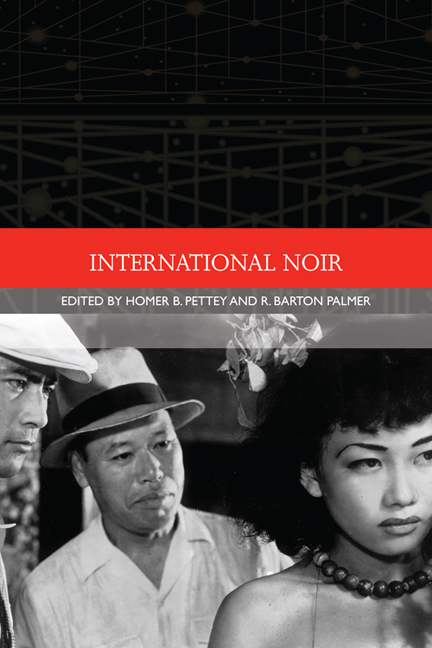Book contents
- Frontmatter
- Contents
- List of Illustrations
- Acknowledgements
- Notes on the Contributors
- Traditions in World Cinema
- Introduction: The Noir Impulse
- 1 British Noir
- 2 French Noir 1947–79: From Grunge-noir to Noir-hilism
- 3 French Neo-noir: An Aesthetic for the Policier
- 4 Early Japanese Noir
- 5 The Gunman and the Gun: Japanese Film Noir since the Late 1950s
- 6 Darker than Dark: Film Noir in its Asian Contexts
- 7 Nordic Noir and Neo-noir: The Human Criminal
- 8 Indian Film Noir
- 9 The New Sincerity of Neo-noir
- 10 Post-noir: Getting Back to Business
- Selected Bibliography of International Film Noir
- Selected Filmography of International Film Noir
- Index
10 - Post-noir: Getting Back to Business
Published online by Cambridge University Press: 05 August 2016
- Frontmatter
- Contents
- List of Illustrations
- Acknowledgements
- Notes on the Contributors
- Traditions in World Cinema
- Introduction: The Noir Impulse
- 1 British Noir
- 2 French Noir 1947–79: From Grunge-noir to Noir-hilism
- 3 French Neo-noir: An Aesthetic for the Policier
- 4 Early Japanese Noir
- 5 The Gunman and the Gun: Japanese Film Noir since the Late 1950s
- 6 Darker than Dark: Film Noir in its Asian Contexts
- 7 Nordic Noir and Neo-noir: The Human Criminal
- 8 Indian Film Noir
- 9 The New Sincerity of Neo-noir
- 10 Post-noir: Getting Back to Business
- Selected Bibliography of International Film Noir
- Selected Filmography of International Film Noir
- Index
Summary
For anyone attempting to periodise a genre, let alone discuss its ‘postness’, there is a vital lesson in perspective to be learned from Tag Gallagher's critique of evolutionary models of genre. He points out that Robert Warshow, writing in 1954, ‘found differences between early-1950s and pre-war westerns almost identical to those which critics like [Thomas] Schatz … detect between westerns of the 1970s and early 1950s’. Gallagher attributes this, at least in part, to critics often being ‘unsympathetic to the subtleties of “old” movies’, perhaps loving them ‘for their supposed naïveté’ but nonetheless setting them up ‘as the “fall guys” for invidious comparisons’ which favour recent films that are thus purported to be more ‘complex, … amoral, and … vivid’. Thus it becomes clear that any film that might now seem to be ‘post’ will inevitably – and soon, perhaps even in the lag between writing and publication – fall back into the mass of genre productions. Whatever distinctiveness and exceptionality was created for it by the sheer contemporaneity of its specific variation upon generic repetitions will be speedily forgotten, levelled out, homogenised into a general pattern. Furthermore, as current understandings of genre suggest, to speak of post-noir is to speak of that which, in an important sense and like all genres, does not, and cannot, exist. It is not a material object, but a contingent and contested discursive construct; it is a claim, an argument, a manoeuvre.
This chapter begins with a reflection on the notions of ‘post’ and ‘postness’ and how they function. It indicates the ways in which dominant understandings of noir as primarily a US phenomenon might be challenged and refreshed by a turn towards noir in other national, international and transnational contexts. Finally, inspired by Jennifer Fay and Justus Nieland's treatment of noir ‘as an always international phenomenon concerned with the local effects of globalization and the threats to national urban culture it seems to herald’, and by one of Richard Dyer's propositions about the consequences of neo-noir pastiche, it considers a range of films which, in the light of their work, can be regarded, at this current conjuncture, as post-noir.
- Type
- Chapter
- Information
- International Noir , pp. 220 - 240Publisher: Edinburgh University PressPrint publication year: 2014



